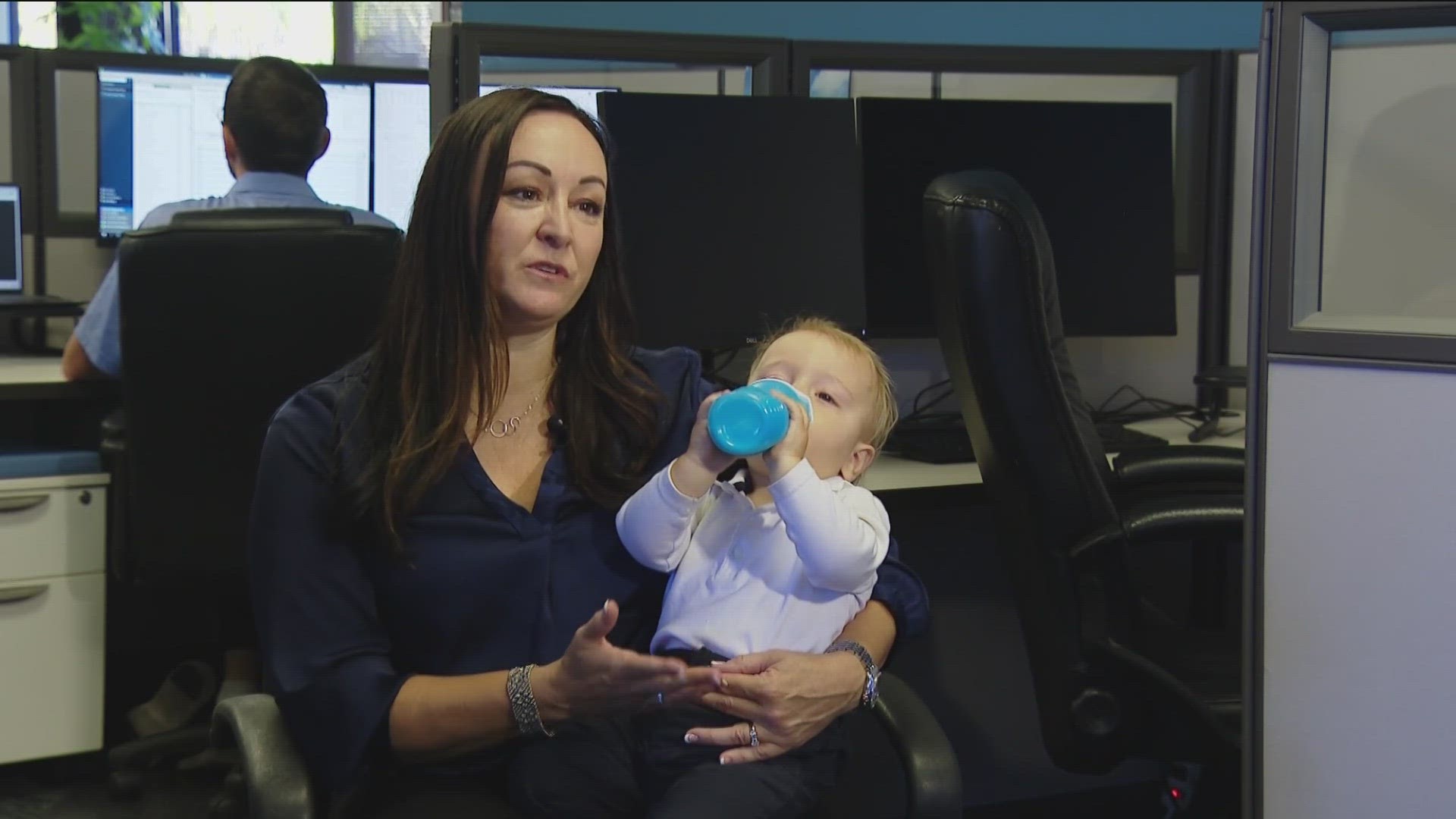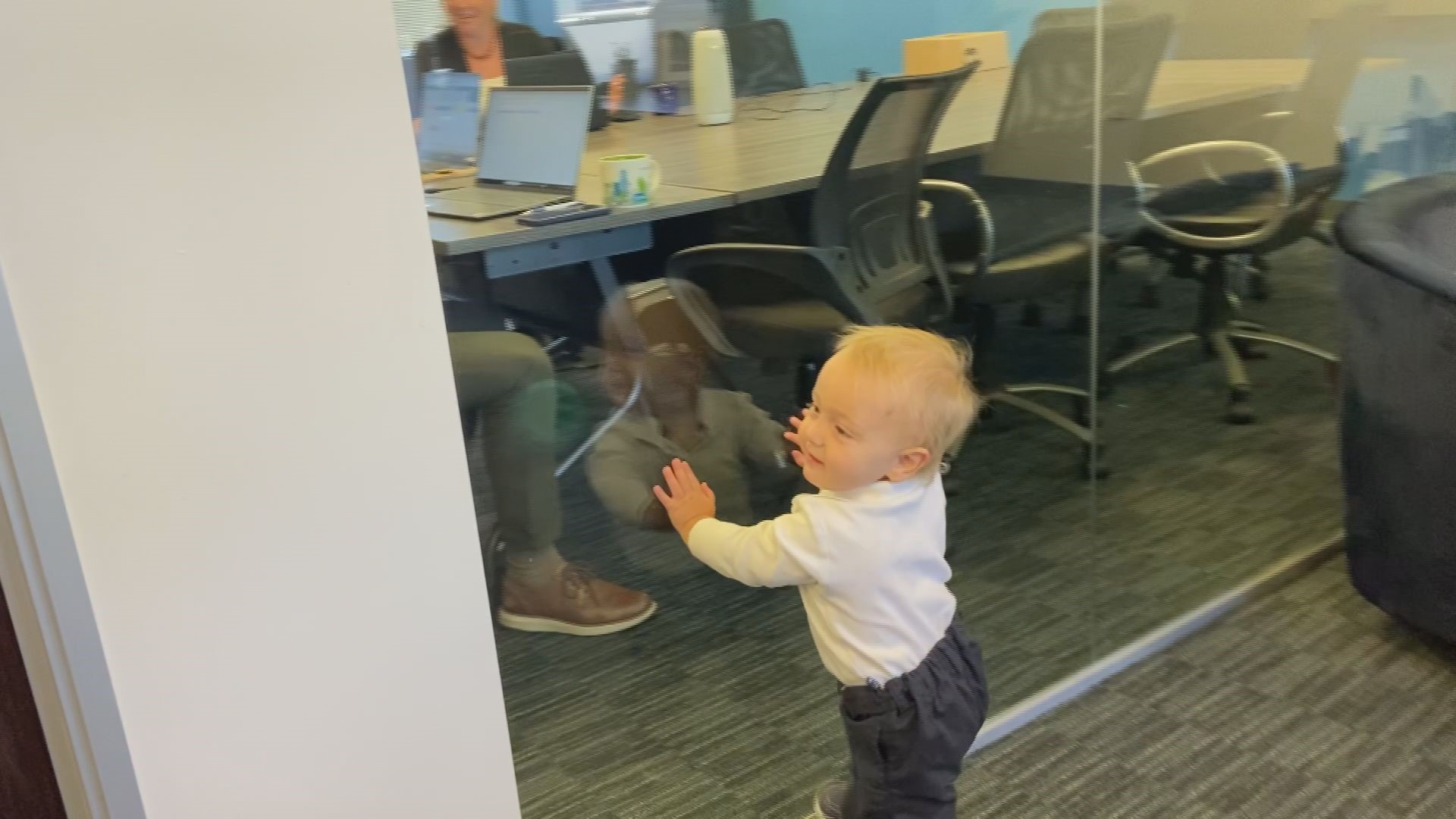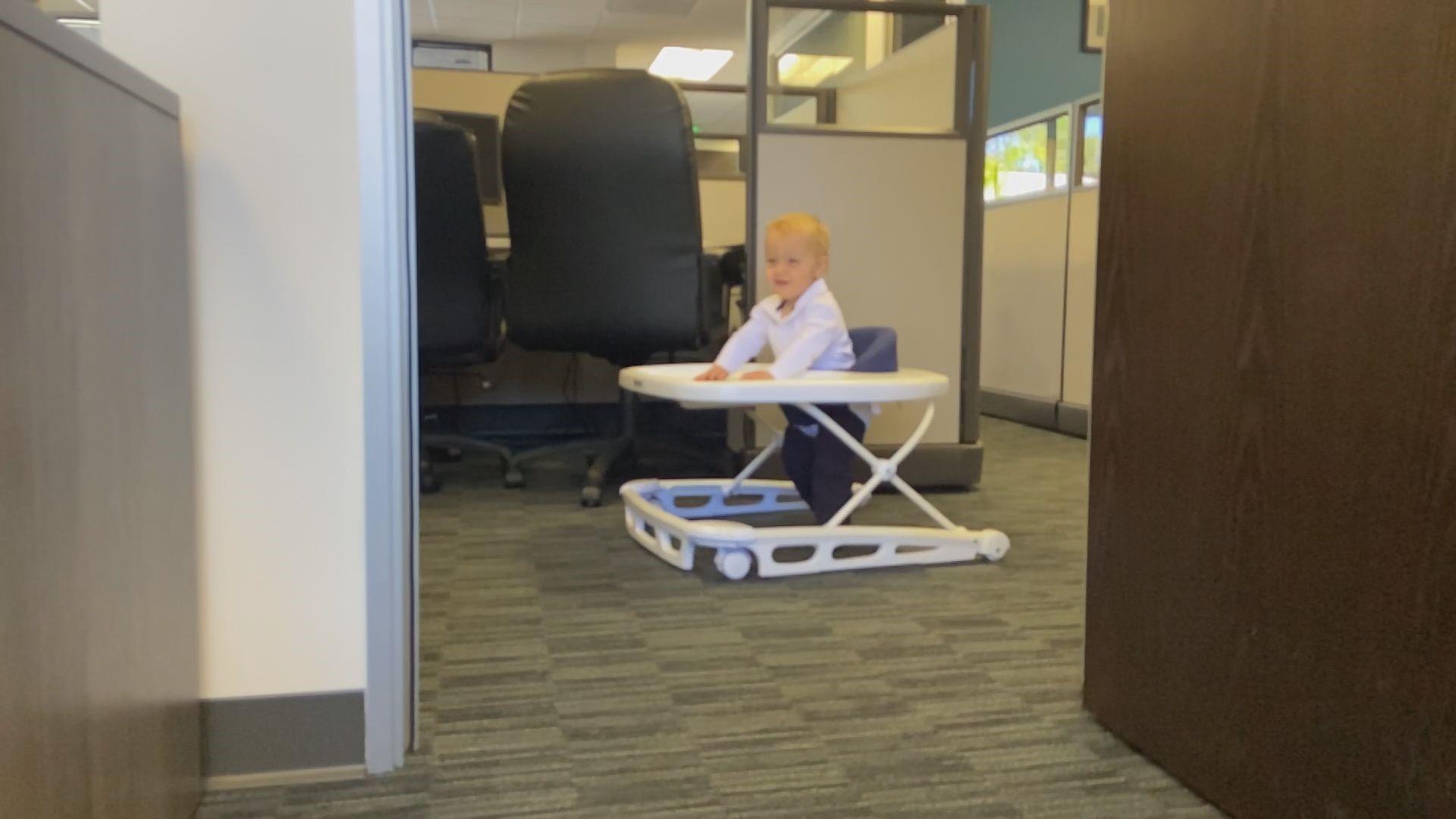SAN DIEGO — We've all heard of companies that allow people to bring their pets to work. Now some companies are allowing employees to bring their babies to work. Not just for one day, but for as long as they like.
Optima Office, a San Diego-based company that provides human resources and accounting services, allows babies and children in the workplace.
"We consider ourselves a very flexible company in general," said Optima Office CEO Jennifer Barnes. "Being able to, if needed, to bring your children is something I think is important."
Barnes has a 14-month-old son named Mason that she brings to work regularly. She said the company's chief operating officer brings his daughter to work on occasion. Other employees told CBS 8 they have brought their kids to work on and off over the years.
"Everyone loves Mason, he's a good baby, he’s happy," said Barnes. "I think people look forward to me bringing him. If he does cry or get upset, I close the door, put him in [my] office, and give him milk or snacks."
She said sometimes he watches 'Ms. Rachel' on an iPad, or sometimes he naps while she works.
"Obviously when your child cries, you don’t want to disrupt the workplace, you want people to be able to focus," she added.
Optima has 100 employees in total throughout multiple states. According to Barnes, the San Diego location has about fifteen to sixteen employees in the office on a daily basis.
Bringing your baby to work isn't a new concept. According to the Parenting in the Workplace Institution, as of 2021, there were more than 200 companies in the United States that allow babies at work, including some government agencies.
Pros and Cons of babies at work
"I think it's an interesting idea, I think there's a lot of pros and cons," said Professor Beth Chung of SDSU's Fowler School of Management. She specializes in workplace issues.
"The pros are retention, recruitment, being able to get commitment from these employees, the employees feeling a sense of identity with the organization, parents are able to come back to work earlier and maybe for some, more productivity," said Professor Chung.
Parents can also save money on child care.
However, bringing babies to work isn't going to work for every company.
Professor Chung said the list of cons include distraction, both for the parents and other employees. She points out that employees without children may feel resentment. There's also potential legal issues, if the child gets into something he or she is not supposed to. She said some companies have a cut-off age where babies are no longer allowed at work once they're able to crawl.
However, she said with more competition for workers in some industries, companies are trying to get more creative to attract and retain employees.
"Some of the major companies have sleep pods at work, they have dry cleaning and dentists," she said. "I think companies are becoming more creative, it's whether this particular program is the right fit for them."
"I think if it's a small organization with private rooms, I think that might work," said Professor Chung. "If it's a larger organization with cubicles, that might be difficult."
What do other employees think of the policy?
Barnes said 70 percent of her employees are parents.
Braedon Stern does not have children. He is a recent college graduate who has been employed at the company for a year. He is also Barnes' neighbor.
"I think it adds a lot of life to the office," said Stern. "It's always entertaining. He's such a cute kid, he doesn't bother anyone, he brings a smile to everyone's faces."
Sarah Walker has been an Optima employee for nearly 8 years. She has two children that she has brought to work over the years. She said it is a morale boost for employees to get to know each other's families.
"[My children] pretty much know everybody," said Walker. "It's so awesome to have that flexibility, they're part of the team, part of the family."
How productive are parents with a baby at work?
According to the Parenting in the Workplace Institute, no formal studies were done on the productivity level of employees who bring their babies to work. However, Carla Moquin, the founder of the organization told CBS 8:
"The consensus among most organizations with formal policies was that parents tended to be about 80% as productive with a baby. However, they mostly made up for this by being far more focused and efficient with their work so that they were not perceived as slacking and so that they would be allowed to continue participating in the program (most people in general aren't 100% productive while at work to start with). Companies also found that the overall improvement in morale and retention from a baby program more than made up for the parents' short-term lowered productivity."
Moquin also added that parents often make up for any drop in productivity by working longer hours, or working at night after the children are in bed.
Final thoughts
Though Barnes is aware what works at her company won't necessarily work everywhere, she said companies should be more open-minded when considering policies like this.
"Why not? If it makes the parent's lives easier, creates a flexible work-life balance for everybody, you should be able to bring your kids to work," she said.
"As long as it’s not disruptive, and it’s not making the parents lose their focus. [As long as] parents can come to the office and still get their work done," she added.
She said another option would be to hire a nanny to come to the office if there are multiple young children at work.
WATCH RELATED: San Diego looks at 72 city buildings as potential child care centers amid the daycare crisis (Jan 2022)



